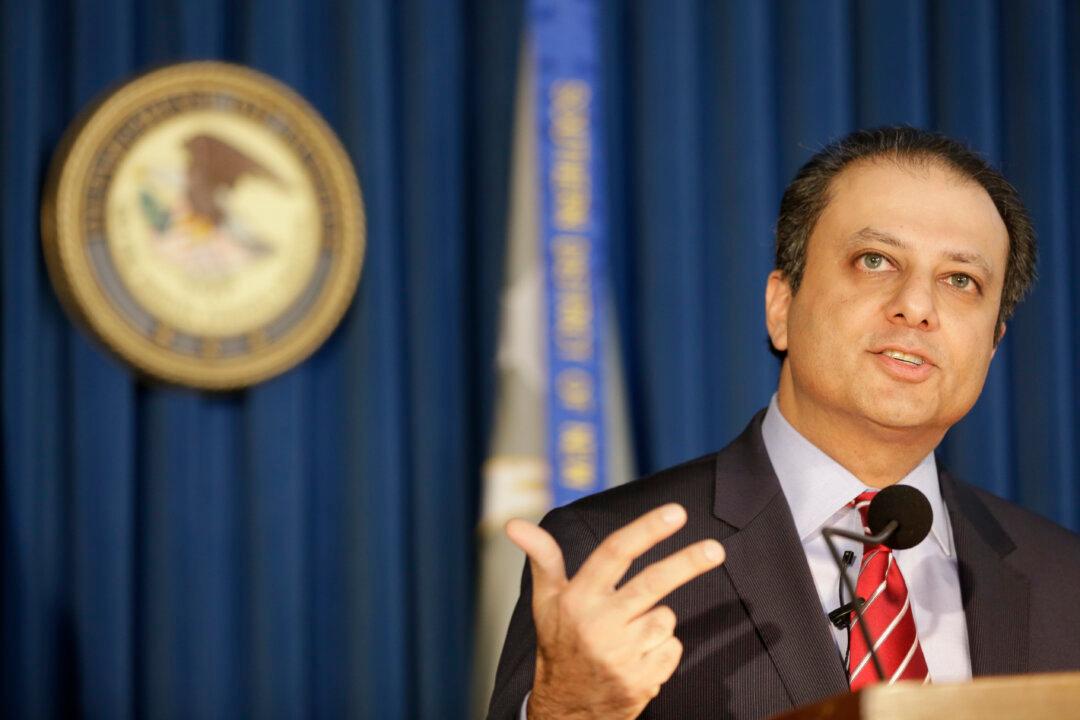A federal court refused Friday to reconsider a ruling that dealt a blow to U.S. Attorney Preet Bharara and the prosecution of insider trading on Wall Street. The decision may limit insider trading prosecution in the future and threaten past convictions.
The 2nd U.S. Circuit Court of Appeals issued a one-paragraph ruling denying a petition from Bharara’s office in the Justice Department. The ruling stated that neither a three-judge panel, which made the original ruling in December, nor the court would hear the case again.
The December ruling had reversed the 2012 convictions of portfolio managers Anthony Chiasson, based in New York, and Todd Newman, based in Massachusetts, ending Bharara’s long winning streak of over 80 convictions for Wall Street insider trading. Chiasson had been sentenced to 6.5 years in prison, while Newman was sentenced to 4.5 years.




